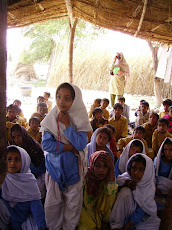Monday….
As we shared breakfast with Yvonne and Robyn at the YHA, I was immersed in conversation about different levels of SI and its relationship to the United Nations and the Millennium Development Goals. Then a quick get-together at the Melbourne Convention and Exhibition Centre to make sure we covered as many presentations as possible. This is a difference from other conferences I’ve attended: usually I have only myself to please in terms of what I want from the program. This time I need to be able to report back to my own club and to other SI members. The notes had better be good.
The Welcome was memorable for:
• Variety of cultural groups present
• Excellent didgeridoo and dancing from Indigenous group, mostly from the local Kulin Nation.
• Aria sung from the first indigenous opera about the creation of the Murray river.
Facts I learned from the Welcome:
• The MDG Summit will be held in October 2010 in New York. Resolutions from this conference will feed directly into that Summit.
• Two-thirds of the world’s poor live in the Asia-Pacific region.
• We have made good progress on reducing the incidence of malaria.
• There has not been enough progress made on Goals 4,5 and 6. (Goals 4,5, and 6 are: reduce child mortality rate, improve maternal health, combat HIV/AIDS, malaria and other diseases.)
• There is a mixed prognosis for achieving the MDGs, partly because of the impact of the GFC and the oil crisis.
• Maternal mortality rates are still high, and have increased in Afghanistan, Laos and Papua New Guinea.
• Australia will increase aid spending to .5% of the Gross National Income, most of which will be spent in the Asia-Pacific region.
• Australia has increased aid to Africa, South America and the Caribbean.
• Pakistan will be supported by Australian partnerships with NGOs and UN agencies already in the country.
• When countries have linked development to the MDGs, they have made most progress.
• Improving maternal health has been the least successful of the eight goals.
• Intervention for HIV/AIDS is a moderate success story:
o The cost of medical support for an AIDS patient has decreased from $14,000 per year to $8,000, as a result of successful advocacy.
o We see a reduction in new infections of about 17%.
• 6,000 people per day die of the health effects of lack of access to potable drinking water.
Principles I learned:
• Economic growth is a necessary but not sufficient condition for poorer countries to progress on the MDGs. A Human Rights approach is also needed.
• In designing solutions for a group of people, the most vulnerable must be engaged.
• One disease cannot be isolated from another: TB and HIV/AIDS are two diseases, but it is only one life. We need to be able to deliver broader health outcomes.
Margaret McFarland, Delegate
Monday, September 6, 2010
Subscribe to:
Post Comments (Atom)







No comments:
Post a Comment